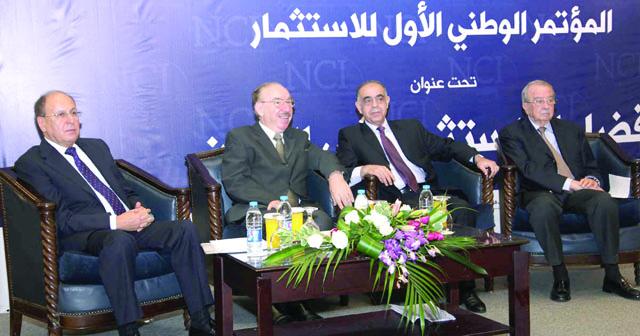You are here
Government on the defensive as key businessmen cast doubt on ‘partnership’
By Omar Obeidat - Dec 30,2014 - Last updated at Dec 30,2014
AMMAN – Businesspeople on Tuesday accused the government of treating the private sector as a competitor, a charge rejected by Minister of Industry, Trade and Supply Hatem Halawani.
In interviews with The Jordan Times, several private sector representatives said that the government has drafted important business and economic legislation this year without taking the concerns of the business sector into account.
Economist Khaled Wazani, who is also a businessman, said the government never listens to the views of private sector leaders when it comes to drafting laws or making decisions that could affect the performance of the economy and private businesses.
Industrialists, merchants and hotels are complaining because of recent laws endorsed by Parliament, Wazani said, citing the draft income tax law and the Investment Law as controversial bills over which the private sector has expressed concerns and reservations.
He also referred to the government’s decision to increase electricity prices on the industrial sector by 15 per cent as of the beginning of 2015, a move, he said, that would limit the competitiveness of Jordanian-made products.
"As global oil prices have declined sharply over the past months, I find it unnecessary to raise power tariffs on industries or at least the rate of increase should be lower," the economist said, adding the government does not consider the private sector as a partner in the economic growth process but instead it treats it as a rival.
Halawani said such a charge is unfounded and “the government is proud of its partnership with the private sector”.
The private sector was consulted before and during the drafting of all business laws, Halawani told The Jordan Times, adding that the government consults not only the business sector but also Parliament.
In regards to the investment and income tax laws, the minister said they were drafted in partnership with the private sector, indicating that the decision to raise power tariffs on economic sectors was taken more than a year ago as part of the International Monetary Fund-sponsored economic and financial reform programme.
Wazani replied it is true the government sits with businesspeople to discuss legislation or policies but never takes their concerns or views into account.
Tariq Tabbaa, board member of the Jordan Chamber of Commerce, and Musa Saket, board member of the Jordan Chamber of Industry, agreed with Wazani.
“The government sees us as competitors,” said Tabbaa, charging the public-private partnership the government promotes is a “myth”.
There is no real partnership; the government meets with business owners but implements what it sees fit to bridge budget gaps regardless of the negative impact policies may have on economic activity in the Kingdom.
Tabbaa said the draft income tax law, which raised tax rate on the commercial sector from 14 per cent to 20 per cent (after the first JD100,000 of profits), would have “bad” consequences on commercial activity in the country.
Saket, in reply to Halawani’s remarks, asked why the private sector would express objections against the investment and income tax laws if they were drafted in partnership with business representatives.
The government always contacts the private sector after finalising legislation to express their views, he said, adding that the private sector should be engaged in the very early stages of drafting any law.
The industrial sector has been calling on the government not to raise power tariffs for months but to no avail, Saket said.
Wazani said a series of paid advertisements by the private sector over the past few days in daily newspapers urging the government to reconsider the tax law and not to raise electricity prices is a clear proof the government is not listening to business leaders.
Related Articles
The government and the private sector are pinning hopes on the new investment law for whetting the appetite of Jordanian and foreign investors.
Private sector representatives criticised the Lower House for excluding the sector from a special council to oversee the public-private partnership.
AMMAN – Despite regional turmoil, Jordan continues to be a point of attraction for foreign investors who view the country as an oasis of pea












